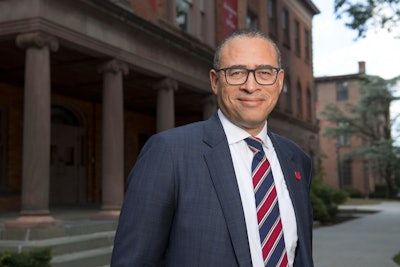Rutgers University's plan to merge New Jersey’s two largest public medical schools, New Jersey Medical School and Robert Wood Johnson Medical School, has proven controversial, NorthJersey.com reported. Dr. Jonathan Holloway
Dr. Jonathan Holloway
Faculty concerns and disagreements surrounding a potential merger culminated in a Jul. 21 vote of lost confidence in Rutgers President Dr. Jonathan Holloway by the University Senate.
Critics claimed that the Board of Governors rushed to approve the move Jul. 10, just three days after releasing a report on whether medical residency options for top students could be weakened by a merger. According to the vote, Holloway allowed the Board of Governors to vote on the medical schools' merger even after the Senate had asked for the vote to be postponed.
The Senate also called on Holloway to pause the merger until the University Senate has reviewed and decided on the merger proposal. A merger would take five years.
A merger would give medical students experience in a university hospital, private hospital, and safety net hospital, with access to more clinical clerkships, electives, and patient experiences without current administrative barriers, said Dr. Brian Strom, chancellor of Rutgers Biomedical and Health Sciences. Having the two school be separate creates an “artificial separation” that hinders teaching, care, and reputation, he said.
However, opposing faculty argue that such a merger would provide little benefit for clinical care and medical education, given that the two schools collaborate anyway. Such collaboration needs to be improved, but not through a merger that would add another administrative layer to a stressed system of two under-resourced schools, said Dr. Laura Willett, who taught and practiced primary care at Robert Wood Johnson.
Other concerns about the merger include issues of larger class size affecting student chances at prestigious residency programs; quality-of-life and commuting pressures for physicians; and salary and work schedule worries for faculty; and reduced attention and resources for already marginalized and low-income Newark residents.














